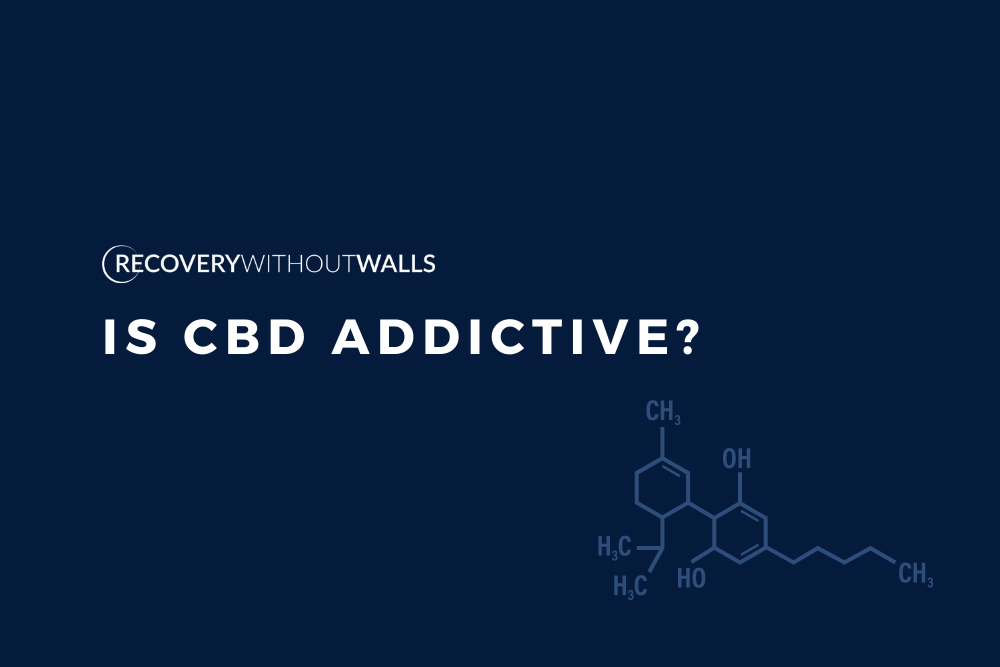Is CBD Addictive?
Cannabidiol, or CBD, has skyrocketed in popularity in recent years. You may have seen signs advertising its availability at stores near you, or read about it on social media. Proponents of CBD claim it is an all-natural, plant-based remedy for multiple health concerns, but if you’re thinking about trying it for the first time, you may have several questions about what it is and whether it’s safe.
What Is CBD?
Cannabidiol derived from hemp became legal in the U.S. with the passage of the 2018 Farm Bill. Today, you can find CBD products like capsules, oils, tinctures and gummies in various online and brick-and-mortar stores. People take CBD in hopes of relieving the symptoms of conditions like anxiety and inflammation, but you should be wary of products claiming to be a “cure” for any illness.
CBD is one of hundreds of compounds in the marijuana plant, but unlike THC, it’s non-psychoactive. That means it doesn’t bind to the brain receptors that are responsible for the characteristic high. The World Health Organization has no reports of CBD-related abuse or deaths, but it’s possible to become psychologically dependent on any substance if you use it often enough.
Possible Dangers of CBD
Though you can’t overdose on CBD and it isn’t psychoactive, not everyone who uses cannabidiol has a pleasant experience. Some potential adverse side effects include dry mouth, diarrhea, fatigue and a loss of appetite.
Always check with your doctor before beginning a CBD regimen, especially if you routinely take other meds. If you’re taking a prescription medication with a “grapefruit warning,” you should also be aware that cannabidiol can cause similar unexpected drug interactions. People who take high doses of cannabidiol may show abnormalities in liver-related health screenings, which is the same effect as over-the-counter pain medications such as Tylenol.
Does the FDA Regulate CBD?
A significant safety concern with cannabidiol is that it is primarily available as a supplement, not a medication. Since the FDA does not regulate the efficacy and purity of dietary supplements, there’s no way to be confident that the product you buy has the correct dosage, or that the ingredients listed on the label are accurate.
While some evidence suggests CBD can manage anxiety symptoms, Parkinson’s disease and help treat stimulant addiction, more research is necessary to determine whether cannabidiol is medically beneficial. Currently, the only FDA-approved drug derived from the marijuana plant is Epidiolex, a medication that treats seizures associated with rare forms of epilepsy.
If you decide to try cannabidiol products, do your homework to ensure they come from from a reputable source, and talk with your doctor to confirm CBD use won’t affect any other medicines you take.
Compassionate, Evidence-Based Care
If you are struggling with chronic pain, addiction or a mental health disorder, Recovery Without Walls is here for you. Our beautiful California location is an ideal environment where you can begin your self-guided journey to healing. We primarily provide outpatient treatment to allow our clients to recover on a flexible schedule with minimal disruption to their busy lives.
If our addiction rehab, dual-diagnosis treatment and pain management programming might help you or someone you love, contact us for a confidential consultation.



